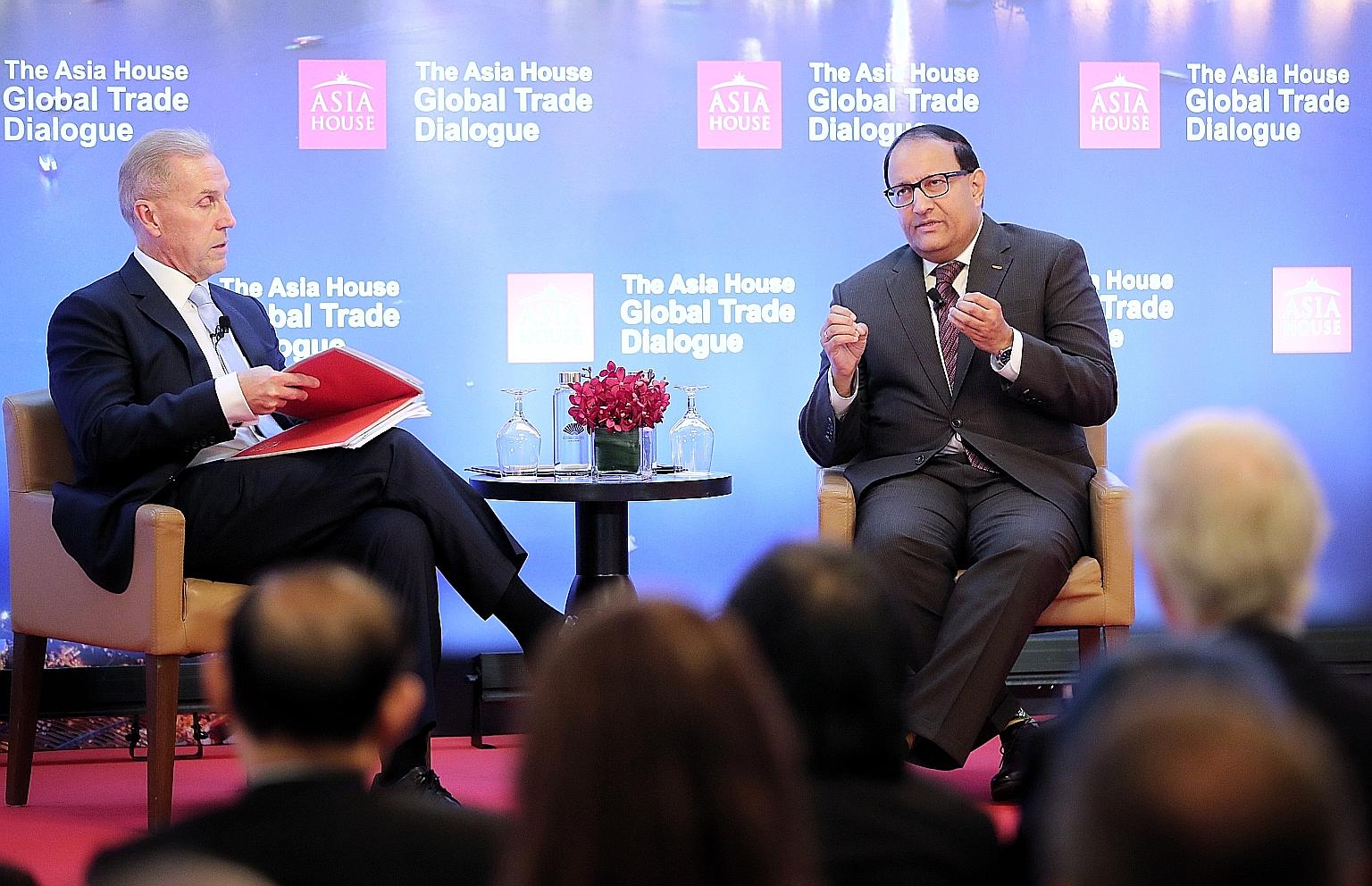Call to keep RCEP door open for India despite its rejection of deal
Sign up now: Get ST's newsletters delivered to your inbox

Minister-in-charge of Trade Relations S. Iswaran (right) said at yesterday's Asia House Global Trade Dialogue moderated by Asia House CEO Michael Lawrence that it is important to keep up the engagement with India.
ST PHOTO: GAVIN FOO
Keep the door open for India, even though it has rejected the Regional Comprehensive Economic Partnership (RCEP) deal for now, said Minister-in-charge of Trade Relations S. Iswaran yesterday.
"Is it a disappointment? Yes. But is it something that has to be a permanent outcome? No," he said at the Asia House Global Trade Dialogue.
He added that the countries that have already come to an agreement will be considering to "keep the door open for India to come in at the appropriate time, but without compromising the disciplines and protocols that we have all agreed to".
"I think it's important we keep up the engagement in order to realise the full potential. India is going to be not just a big market but also an important part of the supply chains in the region. And so, its integration into RCEP is key."
Indian Prime Minister Narendra Modi said at the Asean Summit earlier this week that his "conscience" would not permit him to join the mega trade pact which involves 15 other countries.
But even without India, RCEP will be the world's largest trade pact. It involves Asean's 10 member states plus China, Japan, South Korea, Australia and New Zealand - which together contribute one-third of the world's gross domestic product.
Mr Iswaran also took questions on the trade talks between the United States and China, and the management of cross-border data flows.
Any phase-one trade deal between Washington and Beijing is significant as it is a positive step forward, he said to Asia House chief executive officer Michael Lawrence, who was moderating the session.
"It demonstrates a willingness to engage and a commitment to find solutions," he noted, adding that he belongs to the group that sees the situation as "a glass half full".
In addition, Mr Iswaran, who is also Minister for Communications and Information, stressed the importance of governments working with the private sector to manage data across borders.
"Governments can strike deals but, at the end of the day, there must be arrangements that work for the private sector," he said. "And the private sector in turn has to be able to give us some clear ideas as to how this is going to be made possible."
He added: "There's a realisation and appreciation that data flows can be beneficial. It's not a question of stopping it, but of how we can manage it."
Other speakers at the dialogue came from organisations such as Alibaba, Google, Cisco and the Monetary Authority of Singapore. They took on topics including artificial intelligence, sustainable solutions for future cities, and the value of Asia's digital economy.
Asia House is a London-based centre of expertise on trade, investment and public policy. The Straits Times was the official media partner for the event.
SEE EDITORIAL


